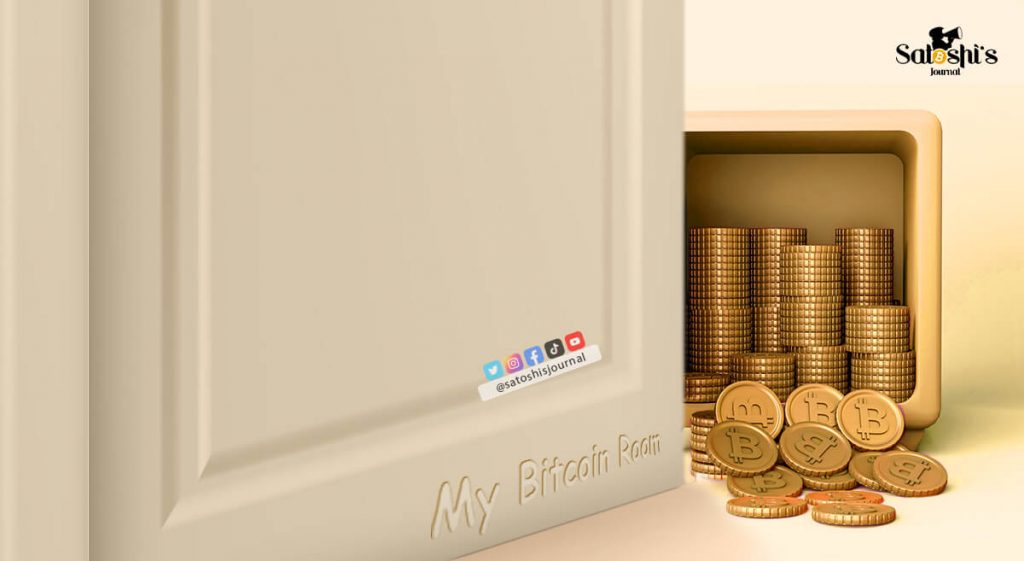Alright, so you’ve acquired some Satoshis writing an article for our publication, now what’s the best way to store it? There is no amount of Bitcoin too small to self custody off an exchange. In this article, we’ll educate you on the process of securing your bitcoin outside of digital wallets and why that is important. To take full advantage of Bitcoin as a money, you need to hold your own private keys. Hopefully this article helps plebs become comfortable with the prospect of holding your own keys in hardware, mobile, desktop, and multisig bitcoin wallets.
Time Preference
Determining a low time preference versus a high time preference is crucial on how often you need to spend your Bitcoin and ultimately when and why you would secure it in self custody. A low time preference allows a bitcoin holder to think long term, resting assured that their money will preserve their purchasing power. Think of low time preference like a long term savings account utilized for delayed gratification and a high time preference more of a checking account. A high time preference is what most people have in regards to money. A person with high time preference discounts future returns to enjoy benefits in the immediate future.
Once you determine you want to use your bitcoin holdings for low time preference for the long term then storing your bitcoin securely makes a lot of sense. Hardware and mobile forms of storage via a private key are usually the most common ways to keep your bitcoin safe from the hands of tyrants, thieves or fools. In cryptography, a public key is used to encrypt messages and a private key is used to decrypt them. Bitcoin uses public and private key cryptography to secure transactions, and if you don’t control the private keys, you don’t actually hold your own Bitcoin.
It’s Your Bitcoin. Own It. Self Custody. Repeat.
In the Bitcoin ecosystem there are so many wallets to choose from that many people are confused on which one is best for them. Let’s break down the pro’s and con’s of each. Small amounts of bitcoin can be saved on mobile wallets, known as hot wallets, which are the least secure. Some common bitcoin wallets are Coinbase, Muun, Strike, Bitnob or Samourai just to name a few.
The best way to be your own bank is to buy bitcoin and secure it on a hardware wallet, also known as a cold wallet, making self-custody easy and secure. Hardware wallets are the first step in getting serious about self custody. Self custody is the future of financial freedom in the digital era. There will be no need to rely on banks or middlemen to manage your bitcoin holdings or any form of money.
Unlike a bank there are no fees to hold your bitcoin or the threat of loss of funds due to mishandling or insider corruption. Some good hardware wallets are Ledger, Trezor or Coldcard. A hardware wallet is a small device that connects to your computer and utilizes both a public and private key to transact with the blockchain network and wallet to secure your money with encryption. A 12 to 24 word passphrase is required if you lose your hardware wallet or it is stolen. As long as you can memorize or keep record of this passphrase you can regain access to your bitcoin anywhere in the world.
For the more experienced bitcoin holder using a multisig bitcoin wallet may be your best bet. There are several to choose from such as Casa Keymaster Multisig or Unchained Capital’s Multisig. Do your own research. Satoshi’s Journal does not give financial advice. Bitcoin should be treated like any other investment so seek a certified public accountant for matters involved long term storage of high value bitcoin.
Don’t Stop Here
Hopefully this write up was helpful in giving the audience an understanding of self custody and how impactful wallets and multi sig features can be in securing your bitcoin off exchanges. Remember the famous bitcoin saying originally coined by Andreas Antonopoulos. “No keys = No Cheese” means if you do not self custody your Bitcoin yourself, e.g. by removing it from the exchanges, then technically you do not own it. One of Bitcoins most useful attributes is allowing individuals to be fully sovereign. Satoshi’s Journal is one small step in the right direction of understanding self custody. Don’t stop here, reach out to other bitcoiners, plebs and network to gain a better understanding of the importance of self custody.


